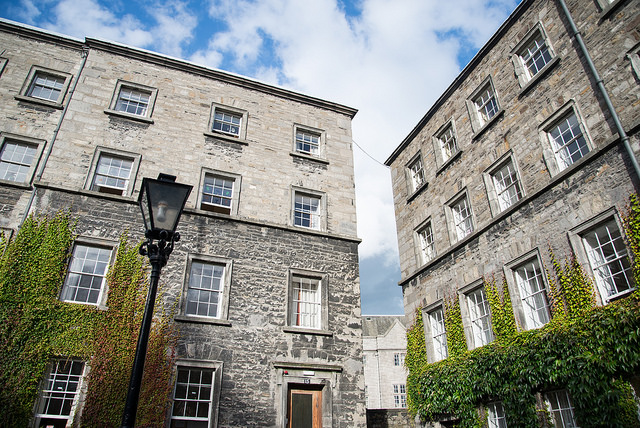Rent prices for on-campus accommodation in Trinity could be increased by four per cent, The University Times has learned.
A document from the agenda of Trinity’s Finance Committee, obtained by The University Times, shows that a paper will go to the committee’s next meeting in February “seeking a 4% increase in all staff and student rates”.
The document also shows College’s Commercial Revenue Unit recommends a “€10 per week premium” on rooms in the College’s Printing House Square complex, which has hit a number of delays and will open in July 2020.
College is at risk of “a significant negative impact” on finances, the agenda states, “resulting from a drop in demand (occupancy) due to the price sensitivity of student accommodation and the nature of the accommodation department’s fixed cost base”.
In an email statement to The University Times, Trinity College Dublin Students’ Union (TCDSU) President Laura Beston said that the union “fully opposes” the proposal.
“We will do whatever we must in the lead up to, and in the aftermath of, this meeting to ensure that students are not burdened with an increase in rent”, she said. “We are already working on ensuring that this decision does not pass and will fight this decision with all the resources we have.”
“The SU has seen an alarming increase in the number of students commuting, facing financial issues and even having to drop out of college due to the Housing Crisis. We will not stand idly by while we have the power to oppose a decision at a college level that may help alleviate one of the biggest pressure points facing our students.”
Thomas Deane, a Trinity media relations officer, wrote in an email statement to The University Times: “At present there are no plans to increase on-campus rents”, adding: “They are periodically reviewed but any changes must be approved by Trinity’s Finance Committee.”
“In addition”, Deane wrote, “any increases must be in line with regulations as set by the Residential Tenancies Board”.
The cost of student accommodation, both on and off campuses, has long been a contentious issue among students. Last summer, the Irish Independent reported that every one of the country’s college’s had upped its accommodation prices for this year.
Meanwhile, cost analysis by this newspaper last summer showed that less than seven per cent of purpose-built student accommodation constructed in Dublin since 2016 is available for less than €840 per month.
Last year, legislation was introduced that forced purpose-built student accommodation to comply with new regulations meaning that rent increases for students would be capped at four per cent per year.
The Irish Times reported in June that universities, led by the Irish Universities Association (IUA), had pushed hard for an exemption to this legislation, which also granted students more tenancy rights.
In response, Síona Cahill, then the president of the Union of Students in Ireland (USI), told The University Times in an email statement that it was “unacceptable that the IUA or any other provider of purpose-built student accommodation would consider themselves above or outside the law when it comes to the need for students to have clarified and strengthened tenancy rights”.
Cahill said USI was “not about to let anyone attempt to weaken” the legislation “based on soundbites or click-bait concerns about students attacking each other on campus in rooms”.
The proposal to increase campus accommodation prices comes just days after the College’s Finance Committee reversed pay cuts to Trinity’s casual staff – a cohort including TAs and many postgraduates – after over 80 people protested the cuts.
The reduction in hourly teaching pay, first reported in this newspaper, saw some casual staff facing cuts of up to 20 per cent in the money they bring in from their teaching duties.
Last night, at a town hall to address conditions for postgraduate students, sharp divisions emerged between the most senior figures in the Graduate Students’ Union, as Vice-President Gisèle Scanlon hit out at her president, Shaz Oye, after she was unable to state how much PhD students get per hour on their stipend.
Oye, who did not oppose the proposal to reduce casual staff teaching rates, told The University Times she “deeply regretted” the “distress” the move had caused to postgraduates, and criticised College for failing to flag it as an item for discussion at Finance Committee.
“The way in which it was listed for noting and approval suggests, and suggested then, that it was not an item of such import to the postgraduate community”, she said. “Clearly, it needed robust discussion, and indeed more discussion.”







